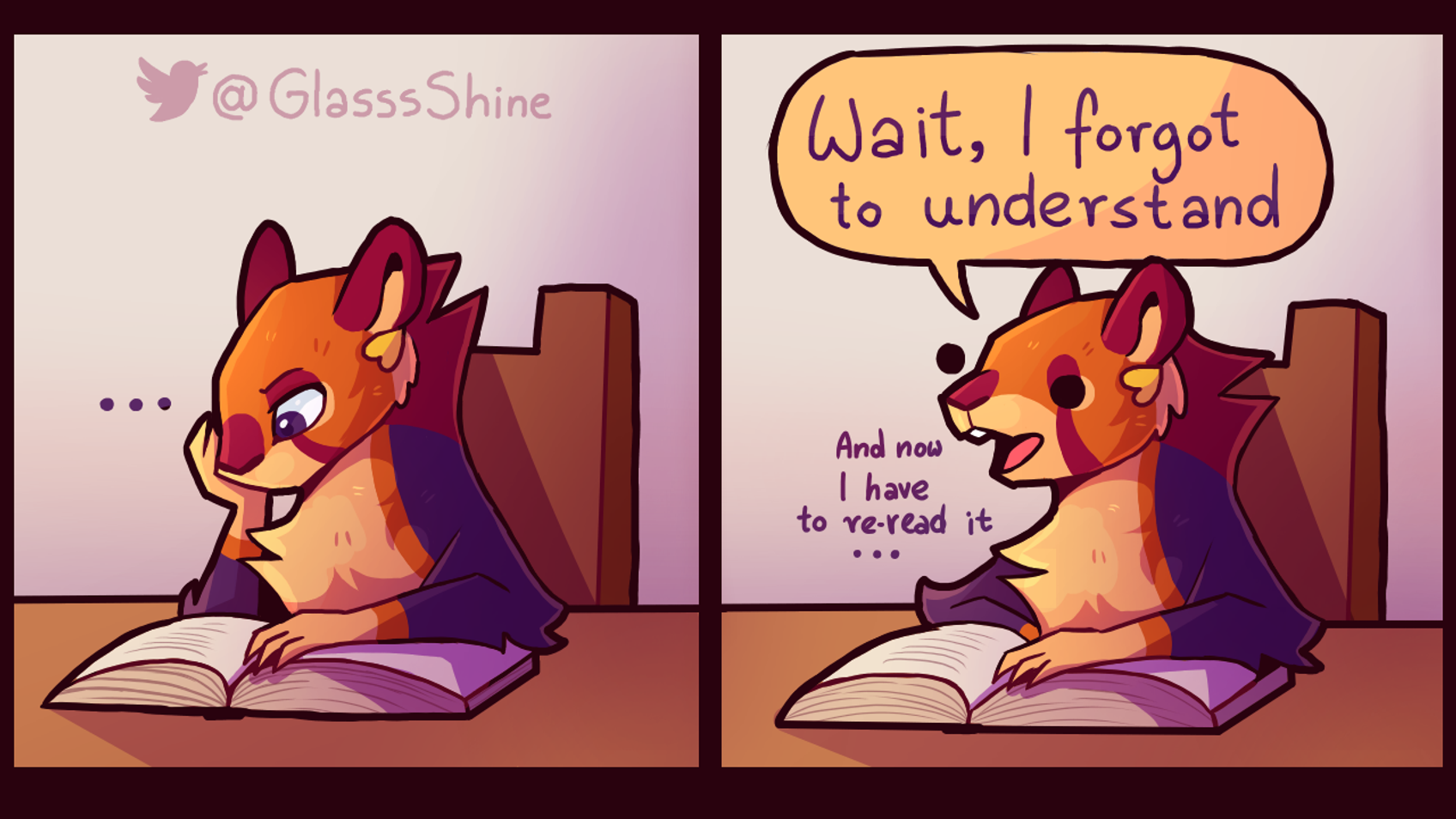
By Michael Mongon
Mar-28, 2024 16:57
Burnout, the Not So Silent Killer

When even things you enjoy aren't clicking, by: GlassShine
We’ve all heard about burnout and we’ve all experienced it in ourselves. If you are the exception to this absolute, ping me. Myself and plenty of others want to study your talent and learn this miracle of tenacious awesomeness.
I’ve had my challenges in getting burnt out. For me, my curiosity lends to me passionately trying to understand how things work. I like building things and seeing if I can make better examples of projects I’ve seen others make. I like challenges. This curiosity causes me at times to collect hobbies and projects like some people collect Lego sets. I like to collect those too.
Passion for something is good, and putting effort towards learning and building things is good for you. It grows your mind through new perspectives. However, letting it consume you completely can yield bad results. You need to learn what your limits are and recognize if you have red flags of burnout. Like the skier warned that a cliff is ahead, unless you have a parachute you need to learn how to read the signs telling you to stop.
Short breaks along daunting tasks can replenish your energy. If you miss your red flags signaling a need for that small break, you will get to the point when twice as much time is needed to recover. The ferocity and focus for that task will not be the same, and in the worst case gone, completely.
What is Burnout
Being “burnt out” refers to a state of emotional, physical, and mental exhaustion caused by prolonged stress or overwork. It can happen in your personal life, but many feel it happens most often at work. The output is a feeling of detachment, cynicism, and reduced efficiency in the project that you were once excited about. It often makes you avoid your responsibilities and halts your progress.
Getting to the point of being burnt out will affect more than just the individual. Often it will impact your relationship with your coworkers and friends as the vitality you may once have brought to your relationships is not the same. You can be quick to show frustration as you are tired and much in need of that break.
It will be a continued lack of motivation, which affects both health and productivity. It doesn’t magically come back either. It takes time and taking that break, this time longer, to recover.
Common signs of being burnt out:
We Aren’t Machines
We mear mortals are meant to take breaks. Being burnt out or seeing your red flag waving does not mean you’ve failed. I would argue the contrary. If you see the flag, then you have found a great victory in knowing yourself better. If you have worked to that point, you also know where your limitations are. Although these red flags and limits are not the same every time or every day. Seeing that you need this rest period is a fundamental sign you are human.
Humans are emotional social and creative creatures. We don’t work like machines because we think through things in different ways. These different thoughts are what inspire our creativity and through that creativity, we build wonderful things.It is innate in us to take breaks because it is fundamental that we sit, eat, and share what we have found, learned, or created. Breaks allow us to let our brains rest and process what we’ve learned. This rest allows us to come back to a project with new ideas, and sometimes better ways of doing it. You know it’s true because you get better at what they do the next time they do it.
I’m a Leader, How do I Encourage Breaks?
As a leader you should lead by example first, and as a listener second. This means that whether the individual that you think needs a break reports to you or not, does not mean you are not able to help. In some cases, you can do more to encourage a colleague than a manager can do for a direct report.
While I have met a few managers with doctorates, none of them had it in clinical psychology. We can all mean well, but we should not be giving clinical advice or taking in on ourselves to diagnose anyone. As a manager, you can help guide, but it is important to focus on not dictating mental health care.
It is disheartening when fellow managers idly say an individual is burned out and go on to prescribe the solution. Everyone means well, but as a manager, the prescribed fix is something that is also prescribing failure if it doesn’t work. If you catch yourself saying this, realize that unless the individual has brought to you what they need, you likely don’t know. This is your time to ask the individual if their needs are being met, and how you can support them in finding out what that is. It is on that individual to express what those needs are.
This doesn’t mean a direct manager or coworker ignores how someone may be expressing themselves. If someone is short-tempered, falling asleep at their desk, smells from lack of personal care, or any of the myriad of symptoms of being burned out, they should be discussed. However, the discussion is about how they affect others and the work at hand, not diagnosing them.
This is the most important part of separating yourself from being a leader and a boss. A leader knows their limitations and helps see and train others to see theirs. A boss dictates direction and prescribes to the problem. Where it can be a fine line, you will develop a stronger community around you by respecting others by coaching them to be accountable to themselves and their team.
Modeled Examples
If you are still struggling to understand what this looks like and how your quick prescription can cause issues, look at these models of examples of situations that have happened. Perhaps you have seen some of them.
1.
Employee: I’d like to take Friday off. I know you ask for two weeks' notice on vacation days, but I’ve been putting in extra time for this project and need an extra day this weekend to recuperate.
Manager: We need you here Friday for the pitch, why don’t you wait two weeks and plan a nice vacation? I just went to Belize last month for a few days and it was great. A vacation like that would really help you.
Here the manager gave a reason for the denial which does happen, however, they went on to describe something that may not be the right solution for the employee or not something that may even be within their budget. As a manager, the better way would be to look for a solution to moving the meeting or accommodating the request as quickly as possible. Discussing vacations isn’t a bad thing, but don’t assume that your dream vacation is what others may dream of.
2.
Employee: I can’t figure out this problem, and I feel like I’ve tried everything. I don’t know what to do. I’m just going to keep working on it.
Manager: Well, good luck, keep at it.
The employee didn’t ask for help here, but this is where the manager can help. They could look at the issue together, bring in another teammate, or even step away from the problem to come back with a fresh set of eyes. This is one of those times where the employee does not give the impression that they are burned out, but hitting a solution they can’t think their way out of could lead to that. In the best-case scenario, the problem does not need to be solved that exact day. Encourage stepping away from it, if direct help can’t be provided.
3.
Employee: The day is over, and my mind is done. I look forward to signing off and relaxing.
Manager: Good job today. After you log off, you should make yourself a cocktail. You’ve earned it.
I like a good cocktail, but there are plenty of people and plenty of cultures that don’t drink. This is an opportunity to either keep it to yourself, or describe what you like, but not prescribe it to someone else. The best yet would be to ask a coworker what they do to relax.
Conclusion
The ‘modeled examples’ above are all from interactions I have seen. In each case, the manager meant no ill will to the individual and was just looking to share their own experience. In many cases it’s not that the advice on burnout is morally wrong, it’s well-intentioned and may even get positive results. However, the issue resides in having a leader who does not help understand the individual nor help listen to their needs and asks.
When it comes to being burnt out, it’s not wrong to get burned out, it’s not a morality issue. We make the choices to work hard and in doing so there will be an effect both mentally and physically. It is up to us as individuals to recognize what they need when they go too far and how to see when we need rest. As leaders and managers, it’s up to us to recognize the red flags in others and listen to what’s being asked, before we try to find a solution. You never know when you may learn a trick from someone else to solve your own burnout tendencies. Help where you can, but first come to listen.
